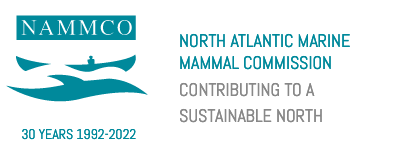20 November 2024: Help Scientists by Reporting Marine Mammal Strandings Across the North Atlantic!
When whales, dolphins, or porpoises strand, it can provide critical information about ocean health, pollution, and disease. Reporting strandings helps scientists collect data on the causes, identify potential threats to marine life, and improve conservation efforts. Sometimes, depending on the condition of the animal it can even lead to rescue attempts for stranded individuals.
If you encounter a stranded animal, do not touch or crowd the animal and remember to contact local authorities so they can ensure it receives proper care and handling. In NAMMCO member countries these are the ways you can report a stranding:
In the Faroe Islands, you can report a stranded marine mammal to the Faroese Museum of Natural History (Tjóðsavnið) email at nathist@ngs.fo. When contacting the Marine Mammal Department, provide details such as location, coordinates (if possible), date, species, and condition of the animal. Including photos is very helpful. You can read about it on their website: https://www.tjodsavnid.fo/greinir/doglingur-upprikin-yviri-vid-strond-havn
In Greenland, you can report unusual findings or abnormalities in marine mammals to the Greenland Institute of Natural Resources (GINR). Email details including the location, date, description, and photos, especially of any deformities, to Aqqalu Rosing-Asvid aqqalu@natur.gl, with a copy to pehe@natur.gl. You can read about it on their website: https://natur.gl/rapporter-til-os/misdannede-dyr/
In Iceland, you can report strandings through a form on their website: hafogvatn.is. Simply fill out the form with details about the location, date, species, and condition of the animal. Adding photos helps researchers gather more accurate data.
In Norway, a new national register for stranded marine mammals has been established, allowing you to report strandings via nye.dugnadforhavet.no. This site, coordinated by scientists from the Institute of Marine Research Norway, also guides you through reporting important details like coordinates, the animal’s appearance, and other observations. You can read more about the register in this article.
Your report could make a big difference for cetacean research!
Photo Credit: Danny Lawson / PA



